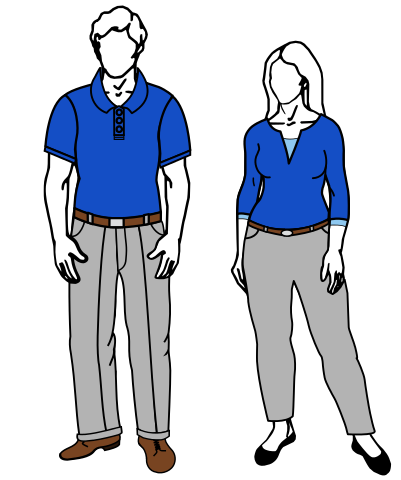
Toggle navigation JuryDuty101
Click Here to See a map of Court Houses Near You!In the American court system, criminal defendants are guaranteed the right to trial by a "jury of their peers". In New York, a pool of potential jurors is randomly selected from the local population of individuals eligible for jury duty.
A prospective juror must be:
How Are Potential Jurors Chosen in New York?
The first stage in jury selection is summoning a pool of potential jurors from the list of local citizens eligible to serve on a jury in New York, as described above.
The jury list shall be comprised of voter registration lists, and other lists as the chief administrator of the courts shall specify, such as utility subscribers, licensed operators of motor vehicles, registered owners of motor vehicles, state and local taxpayers, persons applying for or receiving family assistance, medical assistance or safety net assistance, persons receiving state unemployment benefits and persons who have volunteered to serve as jurors by filing their names and addresses with the commissioner.
Receiving a Jury Duty Summons in New York
If your name is randomly selected for the jury pool through the process described above, you receive a jury summons in the mail instructing you to appear for jury selection on a pre-set day.
While there are a few excuses for getting out of jury selection in NY, most people summoned will have to report to the courthouse for the next stage of the juror selection process, voir dire.
The Juror Selection Process, or "Voir Dire"
Just because you qualify to be a juror and are summoned for jury selection, doesn't mean that you will be selected to be a juror on a case. The process of "Voir Dire", the actual act of jury selection, is how judges, defense attorneys, and prosecutors actually choose the individuals who will sit on the juries for upcoming criminal and civil cases.
During the voir dire process, each lawyer will ask the pool of potential jurors a series of questions about their background, beliefs, prejudices, or relationships with any party to the case. While the goal is to select an impartial jury to render a verdict, each attorney will also seek to exclude any jurors who seem to be more likely to vote against their client's interests. While jury candidates are instructed to be open and truthful when answering such questions, the juror selection process is also where most individuals who don't wish to serve on a trial find a way to be excused from further juror duties.
What Happens After Jury Selection Day
If you are selected to serve on a jury, you will be provided with the trial date, and must return to serve on the jury for the duration of the trial and deliberations. If you were not selected to serve on any jury during the voir dire process, you can go home, and your New York jury duty obligations are complete.
You will receive nominal New York jury duty pay for the jury selection day, as well as for any days served on a jury. Once your service is complete, you won't be summoned for jury duty again until New York re-adds you to the potential juror pool.

Jurors reporting for jury duty or jury selection in the state of New York are expected to dress professionally, in a manner appropriate for a court room.
Most courthouses suggest dress ranging from business casual to business attire. For men, this means slacks or khakis and a polo or button-down shirt, potentially with a tie or suit jacket. For women, this means a professional-looking pair of pants or a skirt, cardigan, sweater, twinset, or shirt.
As a juror, you are expected to maintain a professional and respectable appearance while performing your duties. Hats should never be worn in a courtroom, and you should avoid wearing shorts, t-shirts, tanktops, or anything printed with logos or slogans.
While jury duty is a civic requirement for all eligible citizens in New York, the state restricts how often you can be summoned for jury duty in order to ensure a fresh jury pool and prevent undue hardship by being summoned too frequently.
New York Jury Duty Summons Frequency:
Any juror having served on a grand or petit jury in any court for less than 10 days will not have to serve again for 6 years subsequent to the last day of that service.
Any juror who served more than 10 days, shall be exempt for 8 years subsequent to the last day of such service.
While there are a number of ways to be legally excused from jury duty in New York, failing to appear when summoned for jury selection or jury duty without an excuse is illegal, and can result in legal repercussions.
If a prospective juror fails to appear, and after being served with a notice of noncompliance fails to respond or admits noncompliance without just cause, the courts may impose a penalty of no more than $250 and an order fixing a date certain for jury service by the juror.
Employers in New York are also forbidden from penalizing employees who miss work for jury duty.